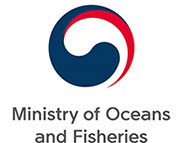Who We Are

Food and Agriculture Organization of the United Nations (FAO)
FAO has 194 Member Nations, two associate members and one member organization, the European Union. Its employees come from various cultural backgrounds and are experts in the multiple fields of activity FAO engages in. FAO’s staff capacity allows it to support: improved governance; generate, develop and adapt existing tools and guidelines; and provide targeted governance support as a resource to country and regional level FAO offices. Headquartered in Rome, Italy, FAO is present in over 130 countries.
FAO’s new focus on governance is driven by the recognition that mission-critical development-related processes affecting food security and nutrition, livelihoods, the management and sustainable use of natural resources confront increasingly complex governance challenges. A broader, flexible, responsive, and more capable governance institutions and mechanisms are necessary to improve effective coordination among diverse stakeholders, enabling problem-solving while working towards the achievement of multiple, and sometimes conflicting, objectives.
Achieving food security for all is at the heart of FAO's efforts – to make sure people have regular access to enough high-quality food to lead active, healthy lives. Our three main goals are: the eradication of hunger, food insecurity and malnutrition; the elimination of poverty and the driving forward of economic and social progress for all; and, the sustainable management and utilization of natural resources, including land, water, air, climate and genetic resources for the benefit of present and future generations. Our 5 Strategic Objectives are to: help eliminate hunger, food insecurity and malnutrition; make agriculture, forestry and fisheries more productive and sustainable; reduce rural poverty, enable inclusive and efficient agricultural and food systems, and increase the resilience of livelihoods to disasters.
FAO members welcomed a Global Work Programme to Advance Knowledge on Rights-based Approaches (GWP) to ensure responsible governance of tenure in fisheries during the 32nd Session of the Committee on Fisheries in July 2016. It aims at ensuring that responsible governance of tenure in inland and marine fisheries contributes to enhanced food security, poverty eradication, capacity development, and sustainable resource use, by providing neutral platforms for exchanging experiences and knowledge.

Ministry of Oceans and Fisheries - The Republic of Korea
The Ministry of Oceans and Fisheries has a mission of bringing vitality to the ocean by restoring marine and coastal ecosystem and environment, and develop the fisheries into a high value added industry in Korea. The Ministry strongly defends the maritime territory to safeguard its sovereignty and protect the rights and interests of the public, contribute to creating decent jobs by actively fostering new industries, such as the marine bio-, tourism, leisure, and eco-friendly vessel and ocean industries. The ministry has affiliated institutions in these areas and levels: Busan, Inchean, Yeosu, Masan, Ulsan, Donghae, Gunsan, Mokpo, Pohang, Pyeongtaek and Daesan Regional Offices of Oceans and Fisheries.
The ministry’s fishery policies emphasizes on; improving the fisheries distribution structure and supporting the seafood processing industry; developing well-framed management of aquaculture industry and marine resources; providing a better response to Free Trade Agreements (FTAs) and increasing fishery product exports. Some of their other major policies are in areas of refreshing oceans, reinforcing Korea’s maritime presence across the globe, future growth engines, maritime logistics and ports, safeguarding water and aquatic ecosystems and job creation. By doing so, the Ministry will help the ocean and fishery industries contribute to the national GDP more than 10% and play a role as a driving force of the national economy and achieving SDGs.

